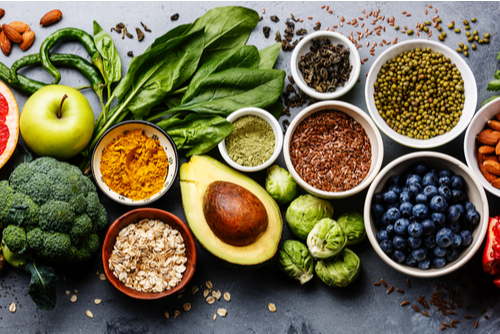Resource Library
Start Reading

A healthy mouth is more important than you might realize. Consider what you expect of your mouth each day –– you use it to smile, eat, and speak. Not to mention that the health of your mouth, teeth, and gums can affect your overall health. Studies suggest that oral bacteria associated with gum disease (periodontitis) may contribute to certain systemic diseases.
Proper oral hygiene supports the body’s natural defense system, keeping harmful bacteria at bay. And, keeping your teeth clean helps prevent painful and costly oral conditions.
Good oral health isn’t hard to achieve, but it does take discipline. The following tips can help have you on your way to a healthier mouth.
Did you know that sugar is a major culprit in tooth decay? Every time you consume sugary foods or drinks, your pearly whites are hit with up to 20 minutes of acid production.
Lactobacillus, the bacteria responsible for tooth decay, grows and multiplies in the presence of sugar. To avoid being among the 26% of adults in the United States who face untreated tooth decay, try to cut down on sweet treats. Eating vegetables, on the other hand, feeds your good bacteria!
 You should use a brush with soft bristles, which should last two to three months using the correct technique. We encourage patients to brush every 12 hours (morning and evening), especially right before bed. Be warned: If you eat after brushing your teeth, the remaining food particles will be a feeding frenzy for the bad bacteria all night long.
You should use a brush with soft bristles, which should last two to three months using the correct technique. We encourage patients to brush every 12 hours (morning and evening), especially right before bed. Be warned: If you eat after brushing your teeth, the remaining food particles will be a feeding frenzy for the bad bacteria all night long.
When cleaning your teeth, hold the toothbrush at a 45-degree angle and use short, circular motions. Each tooth should be brushed 10 times, but gently so as not to erode your gumline.
You’ve heard it before, but now it’s your dentist talking: Quit smoking. The nicotine in cigarettes will turn your teeth brown, but that’s the least of your worries. Smoking suppresses saliva production, creating a ripe environment for bacterial growth along the gumline.
Furthermore, tobacco use accounts for at least 30% of cancer deaths in the U.S. The many toxic chemicals in tobacco (upwards of 7,000) damage a cell’s DNA over time, causing it to grow out of control and develop into a tumor. The good news? Your risk for mouth cancer is cut in half after just five years of quitting.
Flossing fosters a healthy mouth by removing the bacteria that build up between your teeth and along the gumline. Like brushing, there is a right and wrong way to floss.
Whether you use interdental flossers or traditional floss, you should apply it to each side of your tooth in the gap. Then wash it off with water or unroll a fresh section (if using traditional floss) so you don’t spread plaque to the other teeth. Keep the floss tight against the tooth to break up plaque but be gentle with your gums.
Generally, the same foods that are good for your overall health will also promote your oral health. Eating a balance of fruits, vegetables, whole grains, and lean protein will provide your body with needed nutrients while protecting it from harmful agents.
When it comes to oral health specifically, you should focus on consuming prebiotics and probiotics. Many vegetables are good sources of prebiotics, which are food for probiotics. Probiotics can be found in certain types of yogurt, sauerkraut, and other foods that have undergone a fermentation process.
Probiotics repopulate your mouth and intestinal tract with healthy bacteria, assisting in the management of gum disease, cavities, and bad breath.
At Penn Dental Family Practice, we’re excited to support you in attaining the best oral health possible. This year, we invite you to commemorate oral health day by making an appointment for a professional dental cleaning. Since only a dentist can safely and effectively remove plaque from the teeth, these visits are a crucial aspect of your oral hygiene. Taking the time to come in is essential to cultivating a healthy mouth, teeth, and gums!
We invite you to make an appointment at one of our convenient locations by calling us at 215-898-7337.